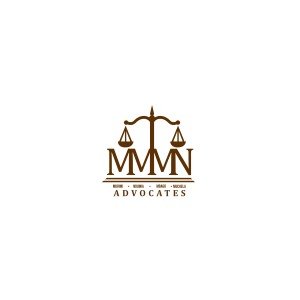Best Landlord & Tenant Lawyers in Nakuru
Share your needs with us, get contacted by law firms.
Free. Takes 2 min.
Free Guide to Hiring a Real Estate Lawyer
List of the best lawyers in Nakuru, Kenya
About Landlord & Tenant Law in Nakuru, Kenya
Landlord & Tenant law in Nakuru, Kenya governs the rights and obligations of both landlords and tenants in rental agreements. This area of law encompasses various aspects, including the rights to property, rent payment, eviction procedures, and maintenance responsibilities. Understanding these laws is crucial for a successful and fair landlord-tenant relationship.
Why You May Need a Lawyer
There are several situations where you may require legal help in Landlord & Tenant matters in Nakuru, Kenya:
- Understanding and negotiating the terms of a lease agreement.
- Seeking legal advice if your landlord fails to provide essential services like water, electricity, or repairs.
- Facing eviction or dealing with disputes related to eviction procedures.
- Defending yourself against unjust eviction or wrongful withholding of your security deposit.
- Resolving conflicts between landlords and tenants regarding rental payment, subletting, or property damage.
Local Laws Overview
In Nakuru, Kenya, the key aspects of Landlord & Tenant law include:
- Rental Deposits: Landlords are allowed to request a refundable security deposit from tenants, typically not exceeding one month's rent. The deposit should be returned within 30 days of the end of the tenancy, minus any deductions for damage or unpaid rent.
- Rent Payment: Rent should be paid by the agreed-upon due date, usually monthly. The law provides guidelines on rent increases, notice periods, and methods of payment.
- Tenant's Rights: Tenants have the right to habitable living conditions, access to essential services, peaceful enjoyment of the property, and privacy.
- Eviction: The law establishes specific procedures for eviction, which generally require a valid reason, such as non-payment of rent or breach of lease terms. Evictions cannot be carried out without a court order.
Frequently Asked Questions
1. Can a landlord increase the rent arbitrarily?
No, landlords in Nakuru, Kenya cannot increase the rent arbitrarily. Rent increases must be reasonable and in line with the local rental market. The law requires landlords to provide written notice to tenants at least one month prior to implementing a rent increase.
2. How much notice should a tenant provide before moving out?
Tenants in Nakuru, Kenya are typically required to provide one month's notice to their landlord before moving out of a rental property. This allows landlords to find new tenants and prepare for the vacancy.
3. What can I do if my landlord refuses to make necessary repairs?
If your landlord fails to make necessary repairs, you should first communicate your concerns in writing. If the issue remains unresolved, you may consider filing a complaint with the relevant local authority or seeking legal advice.
4. Can a landlord evict a tenant without a court order?
No, a landlord cannot evict a tenant without obtaining a court order in Nakuru, Kenya. The law protects tenants from unlawful eviction and provides procedures that must be followed by landlords to legally terminate a tenancy.
5. What can I do if my landlord wrongfully withholds my security deposit?
If your landlord wrongfully withholds your security deposit, you can initiate legal proceedings through the Rent Restriction Tribunal or Small Claims Court. It is important to keep records and evidence of the property's condition before moving in and after moving out to support your claim.
Additional Resources
Here are some resources that can provide further information and assistance:
- Ministry of Housing and Urban Development, Nakuru: The ministry provides guidance on housing and tenancy matters, including landlord and tenant disputes.
- Nakuru County Government: The county government website may offer information on local laws, regulations, and policies related to housing and tenancy.
- Nakuru Rent Restriction Tribunal: This government body handles disputes between landlords and tenants, including issues related to rent, eviction, and security deposits.
- Nairobi Bar Association: The local bar association can help you find qualified lawyers specializing in Landlord & Tenant law in Nakuru, Kenya.
Next Steps
If you require legal assistance regarding a Landlord & Tenant issue in Nakuru, Kenya, consider taking these steps:
- Compile all relevant documents such as your lease agreement, rental receipts, and any correspondence with the landlord.
- Consult with reputable lawyers specializing in Landlord & Tenant law to understand your rights and options.
- Provide your lawyer with a detailed account of the situation and any evidence to support your case.
- Follow your lawyer's advice on the best course of action, whether it involves negotiation or initiating legal proceedings.
- Maintain clear and open communication with your lawyer to ensure a smooth resolution to your Landlord & Tenant matter.
Lawzana helps you find the best lawyers and law firms in Nakuru through a curated and pre-screened list of qualified legal professionals. Our platform offers rankings and detailed profiles of attorneys and law firms, allowing you to compare based on practice areas, including Landlord & Tenant, experience, and client feedback.
Each profile includes a description of the firm's areas of practice, client reviews, team members and partners, year of establishment, spoken languages, office locations, contact information, social media presence, and any published articles or resources. Most firms on our platform speak English and are experienced in both local and international legal matters.
Get a quote from top-rated law firms in Nakuru, Kenya — quickly, securely, and without unnecessary hassle.
Disclaimer:
The information provided on this page is for general informational purposes only and does not constitute legal advice. While we strive to ensure the accuracy and relevance of the content, legal information may change over time, and interpretations of the law can vary. You should always consult with a qualified legal professional for advice specific to your situation.
We disclaim all liability for actions taken or not taken based on the content of this page. If you believe any information is incorrect or outdated, please contact us, and we will review and update it where appropriate.















